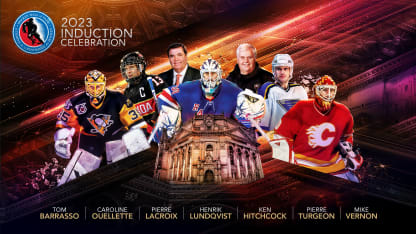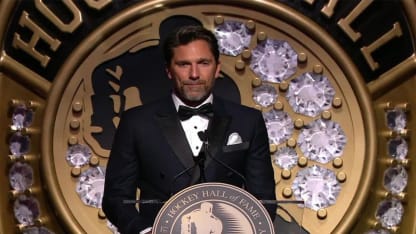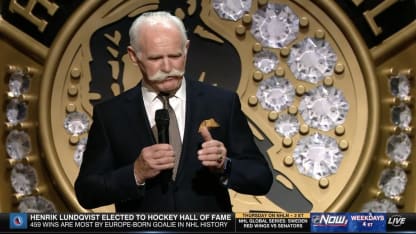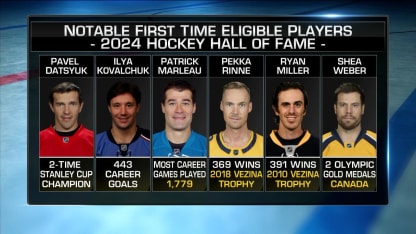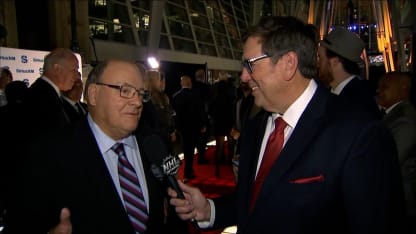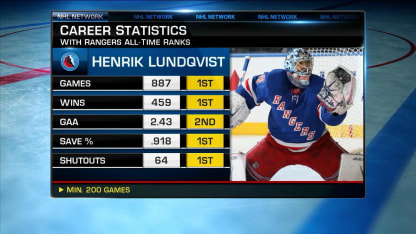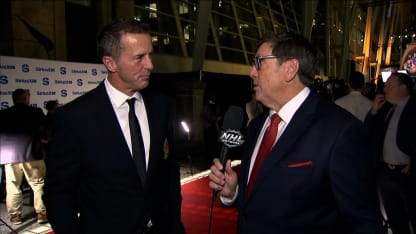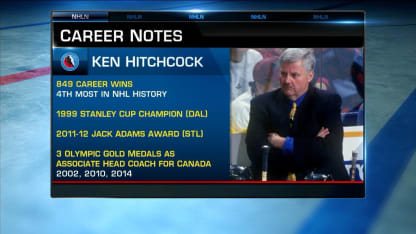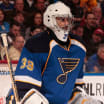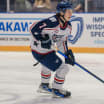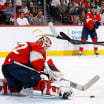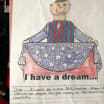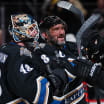TOM BARRASSO: ‘No one gets here alone’
Tom Barrasso reflected on the opportunities and people that led him to the Hockey Hall of Fame during his induction speech.
"No one gets here alone,” the goalie said. "You need love, you need support. And, most importantly, you need opportunity from people along the way in your journey. And I'd like to share this night, and this honor, with people who supported me and gave me the opportunity to be here in this room with you all tonight.”
He started with appreciation with his parents, Tom and Lucy, who adopted him, along with a brother and sister.
“They loved us and supported us in everything we did," Barrasso said. "My parents knew nothing about hockey other than the arena seemed like a good place for the kids to be."
When the arena went bankrupt, Barrasso said his parents became part-owners to keep it alive.
"They became hockey people, they love being at the arena, seeing the joy brought to all who skated there," the 53-year-old said. "I started working at that arena in the summer when I was 12 -- sweeping floors, cleaning toilets. To this day, I have never worked any place else but a hockey arena."
Barrasso also thanked the teammates he played with throughout the years, including NHL stops with the Buffalo Sabres, Pittsburgh Penguins, Ottawa Senators, Carolina Hurricanes, Toronto Maple Leafs and St. Louis Blues.
"I'd like to thank my teammates through the years, with whom we shared great success and failure," he said "Epic card games, golf games. We have a bond that cannot be broken. And we shared a time in all of our lives that cannot be replicated. My thanks to all of you."
Barrasso said that despite whatever skill he might have possessed, he needed to be given opportunities. He singled out three people, each a member of the Hockey Hall of Fame.
Scotty Bowman, who presented Barrasso with his Hall of Fame plaque, was the man who drafted the American high-schooler with the No. 5 pick in the 1983 NHL Draft. He started on opening night for the Sabres four months later.
"My career was on my way," Barrasso said.
In 1988, Pittsburgh Penguins general manager Tony Esposito, a Hall of Fame goalie, traded for Barrasso, who won the Stanley Cup two times there.
"Tony believed in me and believed that I would be a difference-maker,” he said. “Two years later, the Penguins were Stanley Cup champions. I'm forever grateful to Tony for the opportunity he provided for me. It truly changed my life."
The final man he cited was another general manager in Pittsburgh, Craig Patrick. In 2000, Barrasso's father died and his daughter, Ashley, had a recurrence of her childhood cancer.
He said, at the time, hockey was the furthest thing from his mind. He took a year off and when he decided to return, he was selected to represent the United States in the 2002 Salt Lake Olympics. Patrick was the GM of that team.
"Being an Olympian is truly a highlight of my lifetime, and I put it right beside my two Stanley Cups," Barrasso said. "These three men believed in me, they acted on it, and I am grateful to them for the opportunity that they presented to me." – Shawn P. Roarke
